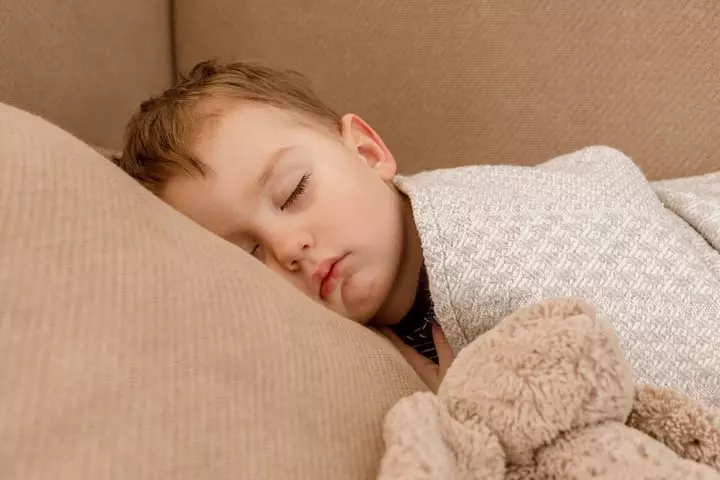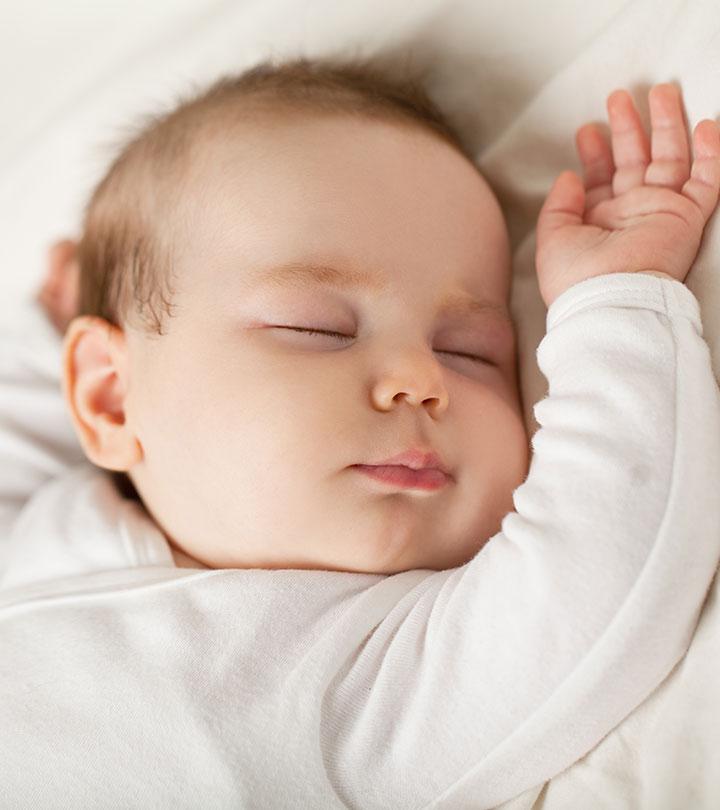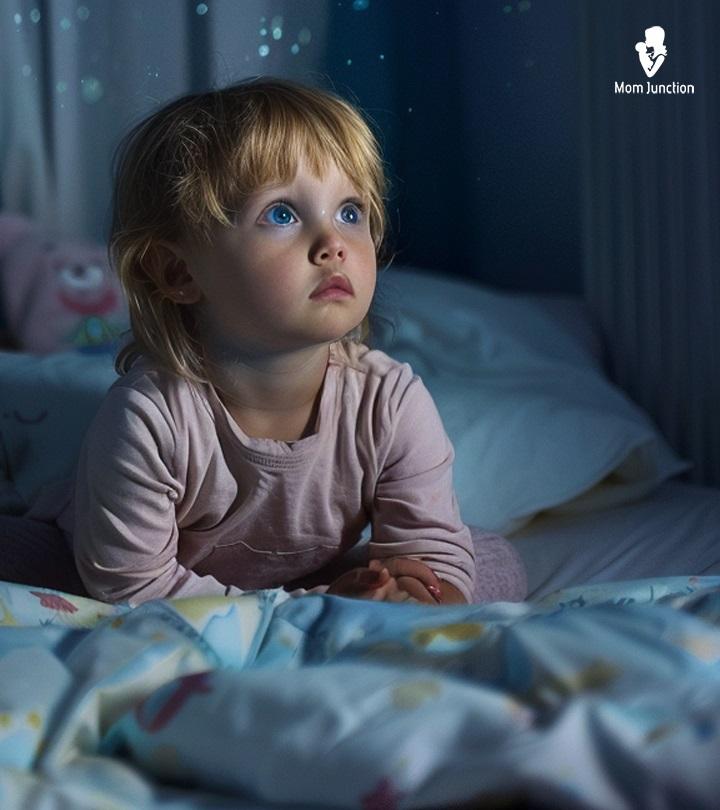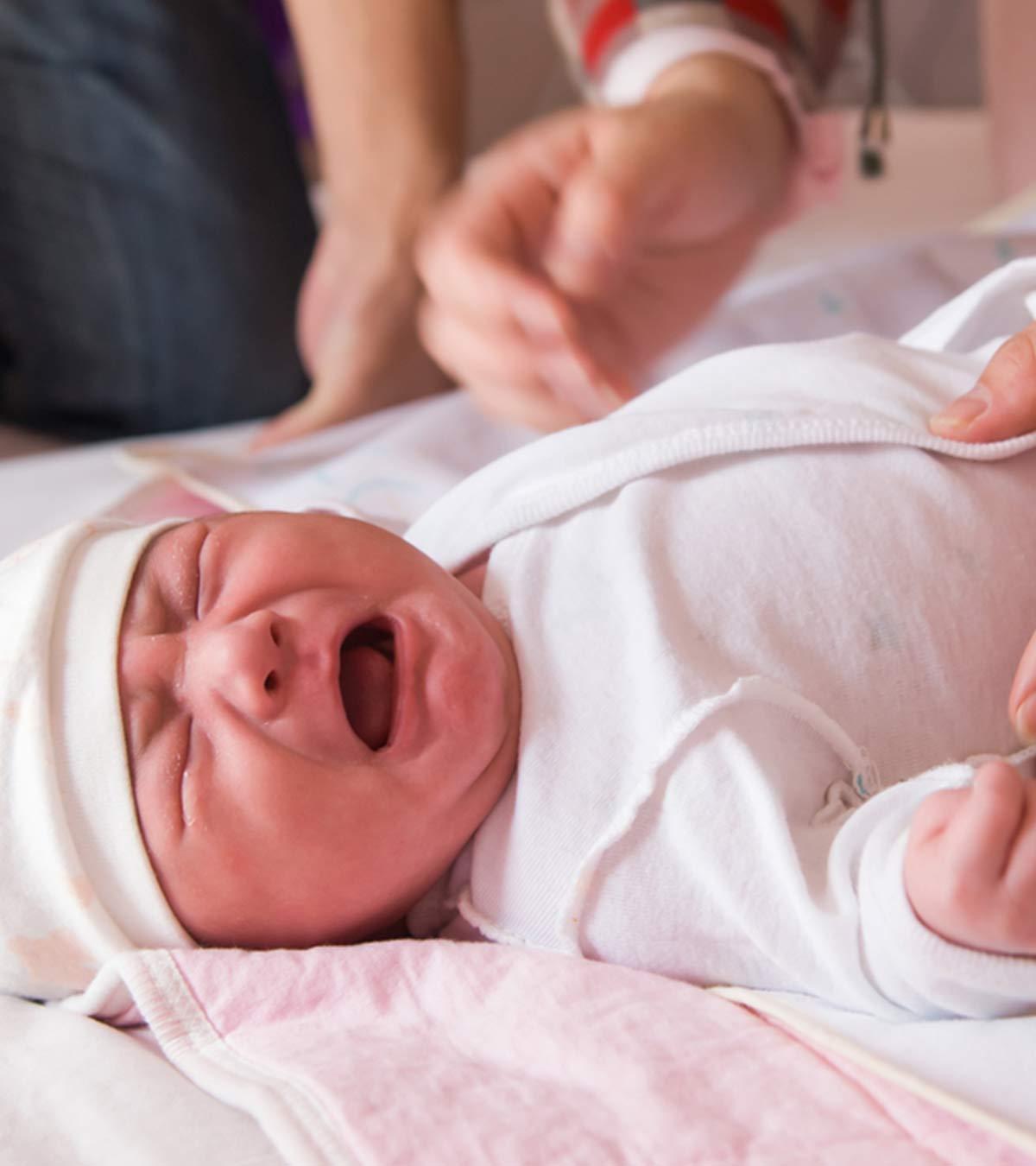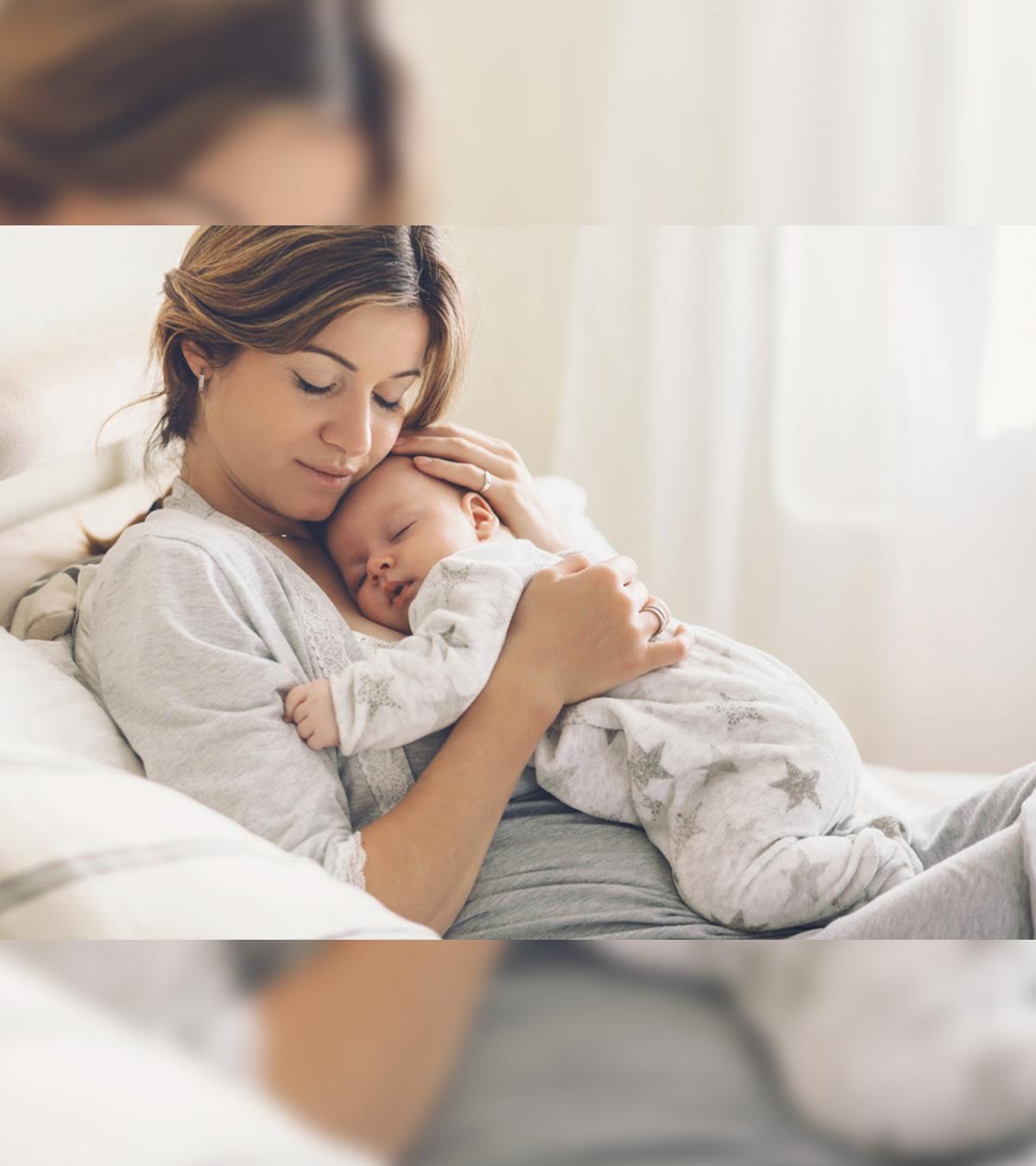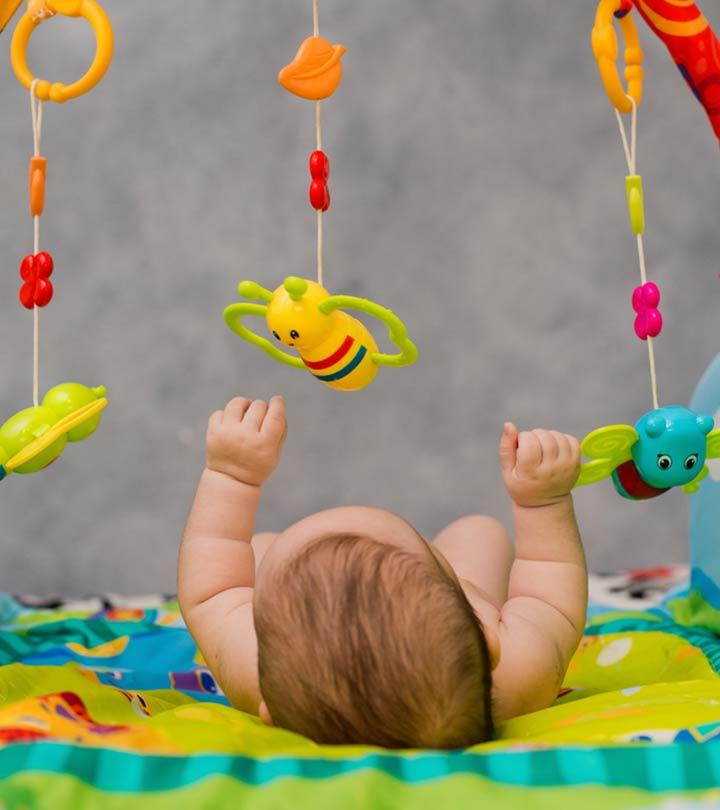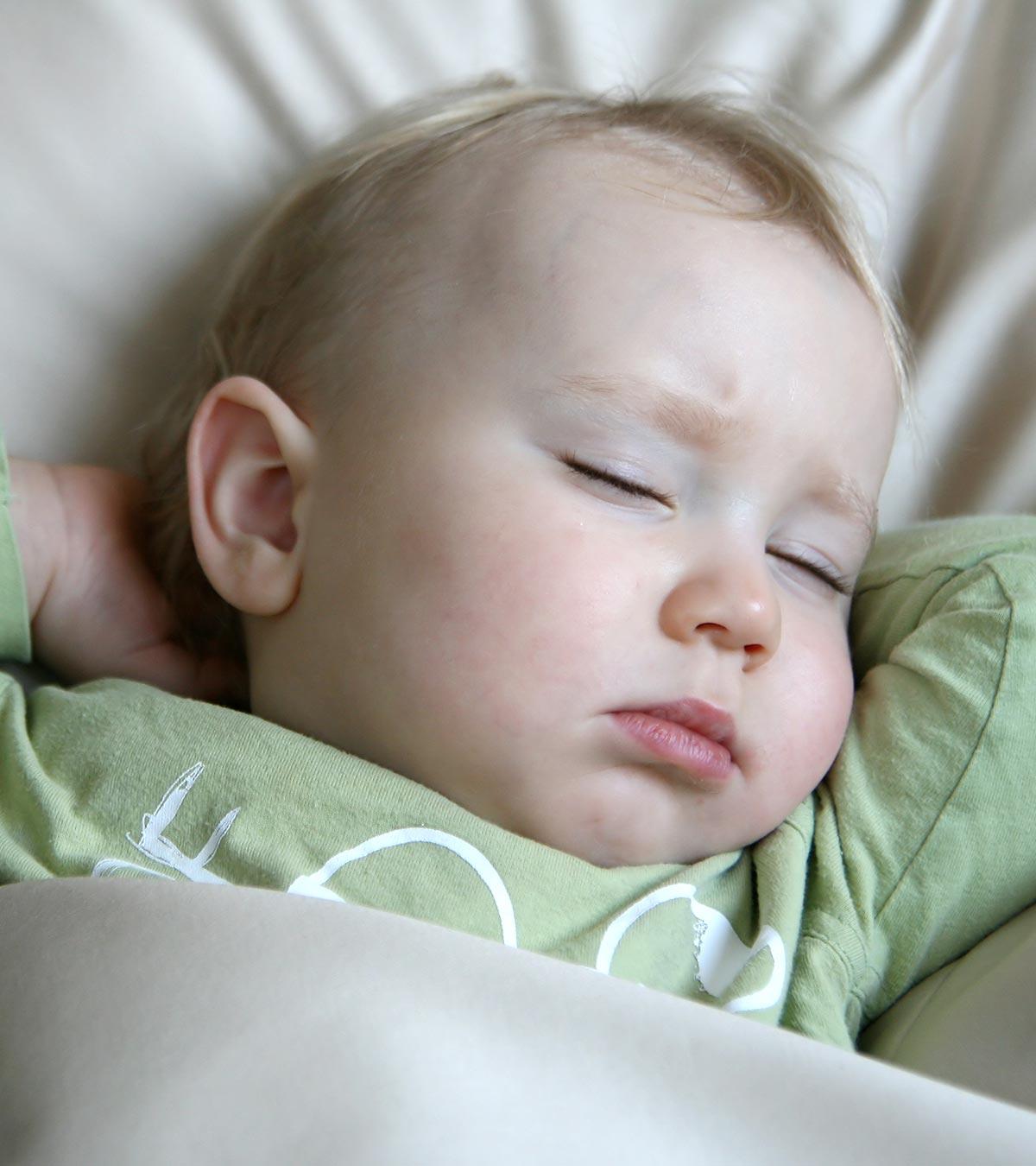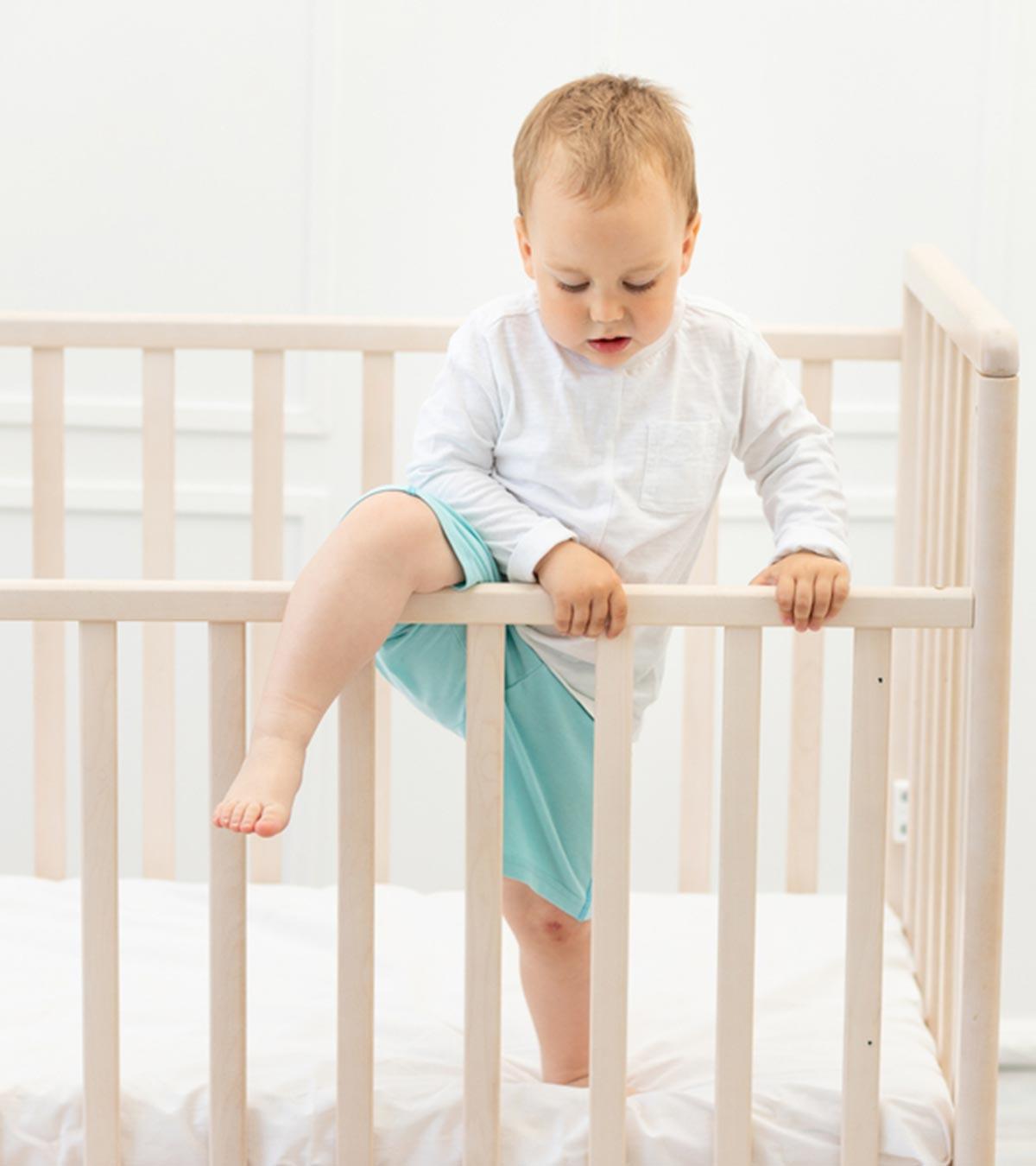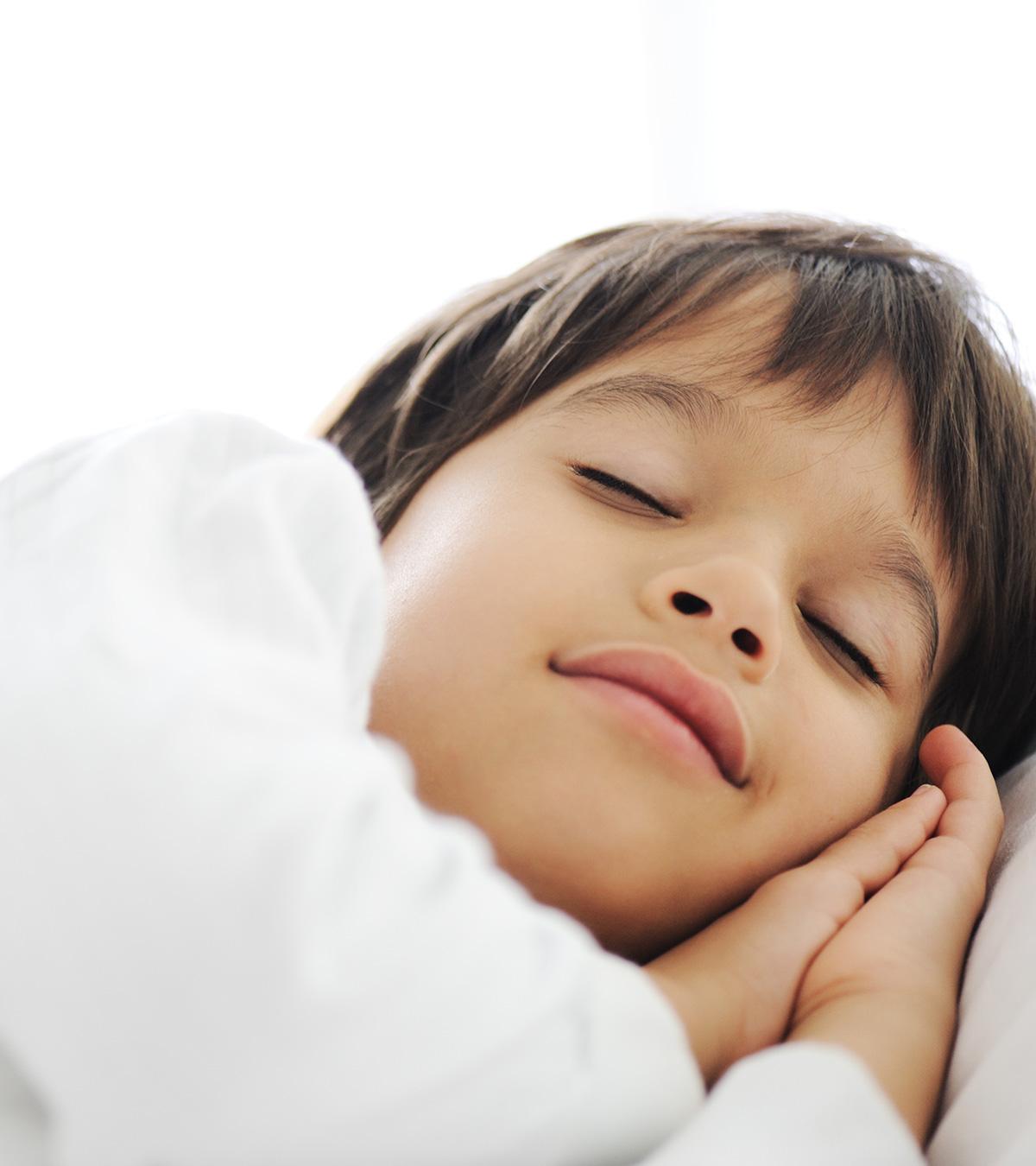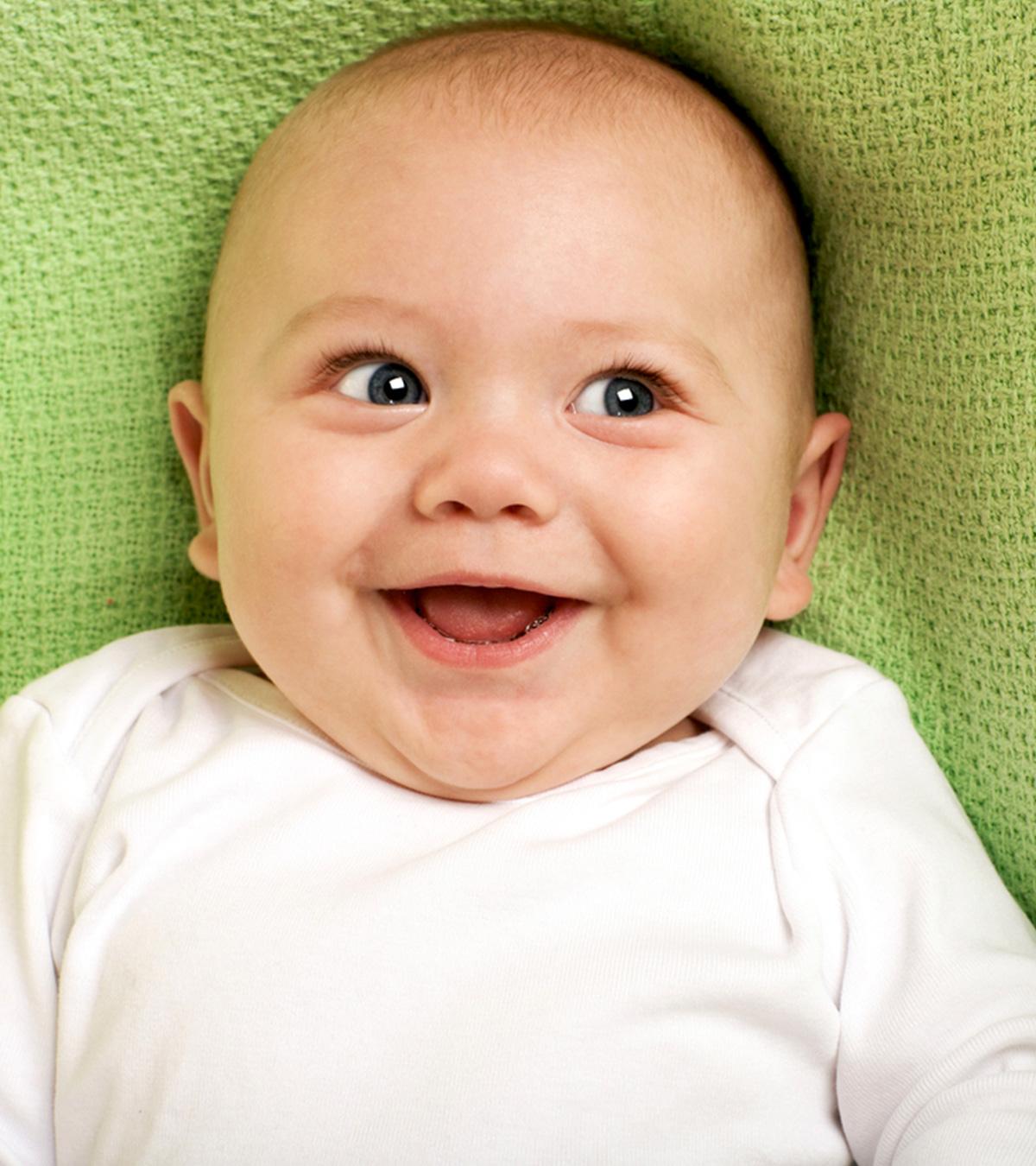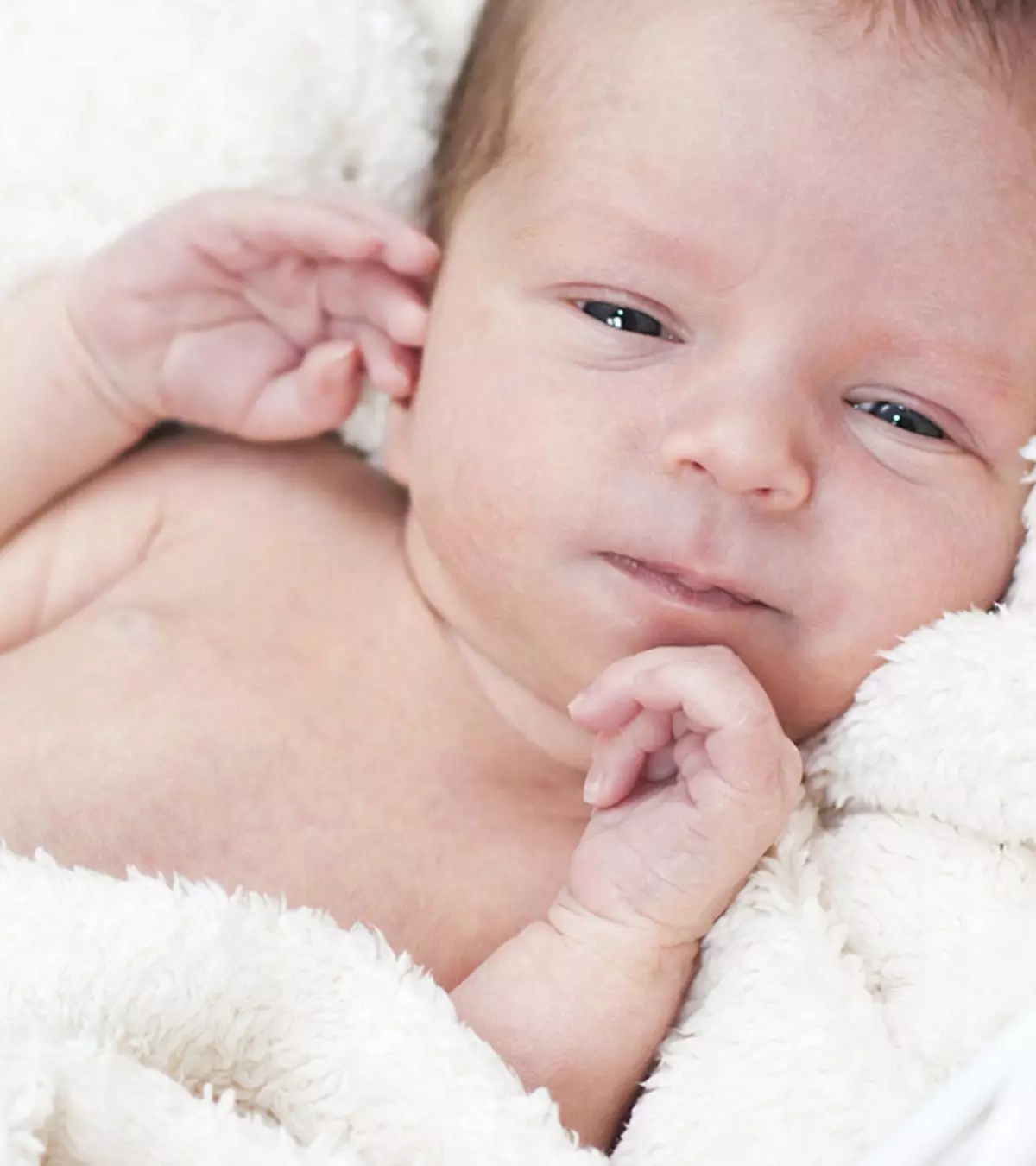
Image: Shutterstock
It is soothing to watch babies doze and sleep peacefully. However, you may occasionally notice your baby sleeping with eyes open and wonder why it happens. It is common for some babies to sleep with completely or partially open eyes, which is called lagophthalmos in medical terms.
Open-eyed sleeping in infants is physiologicaliRelating to the normal functions of living humans and their organs. , and it is not an indication of any medical conditions or sleep problems. However, it is recommended to seek pediatric evaluation if you notice any other symptoms or anything that prevents them from closing their eyelids. Read on to know why babies sleep with their eyes open and what you can do about it.
Is It Normal For A Baby To Sleep With Open Eyes?
Image: Shutterstock
You might feel uneasy to see your baby sleeping with their eyes open. However, you need not worry much, as most of the time, snoozing with the eyes partially or fully open is common and may not be associated with any medical condition. The medical term for this condition is known as nocturnal lagophthalmos.
According to the National Sleep Foundation, about 20% of people experience it, and it even occurs in babies, and most of them outgrow it (1).
But why do some babies sleep with their eyes open? Read on to find out.
Why Do Babies Sleep With Their Eyes Open?
Although it is a common and harmless condition, it could cause concern in some rare cases. The exact reason for nocturnal lagophthalmos is not known yet. However, here are a few possible reasons.
- Genetics: If someone in your family or your partner has this condition, there is a chance of your newborn inheriting it (1).
Andrea, a mother of two, describes how her son sleeps with his eyes open and recalls how the same happened with her brother. She notes, “Rafael sleeps with his eyes open… He goes through various stages of REM sleep, as well as dreaming and crying in his sleep. In the end, he wakes himself up. My brother still sleeps with his eyes open. He sleeps in the living room sitting on the couch, and when you start talking to him because his eyes are open, it wakes him up and scares him (i).”
Image: Shutterstock
- Rapid eye movement sleep (REM): Babies’ sleep patterns are such that they have a longer REM sleep than adults due to an underdeveloped nervous system. This could be one of the reasons your baby sleeps with their eyes open (2).
- A disorder at birth: In some rare cases, babies may sleep with their eyes open if they have a congenital disorderiA structural or functional abnormality present from birth. , such as a defect in their facial nerves nerve (3).
If your pediatrician has ruled out any congenital disabilities, you need not worry about your toddler sleeping with open eyes as long as it doesn’t cause eye irritation. If you notice your child’s eyes becoming dry, you might want to check with your pediatrician to prescribe some eye drops or ointments to protect your baby’s corneaiA transparent layer of the eye that facilitates entry of light through the eyes. from drying up (4).
If you are uncomfortable watching your baby slumber with their eyes open, you can wait until they drift off to deep sleep and gently close their eyelids. However, make sure you do not wake the child or startle them.
When To Call The Doctor?
Image: Shutterstock
Usually, babies outgrow this condition and sleep with their eyes closed. But, if it’s been a while (one or two months), and your baby is still sleeping with their eyes open, or if you find additional symptoms such as wide-open eyes or eye redness, talk to your pediatrician.
In the case of congenital disorders of the eyelids, you need to work with your pediatrician to get the proper treatment.
Frequently Asked Questions
1. Is it normal for babies’ eyes to twitch while sleeping?
It is normal for babies to twitch their eyes while sleeping. Twitches occur during rapid eye movement(REM) sleep, a phase that dominates the sleeping hours of babies during which the motor areas in the brain generate jerky movements in face and limb muscles. Twitches trigger activity in the spinal cord, sensory and motor areas (5).
2. Why do babies roll their eyes and smile when they are sleeping?
Babies may roll their eyes and smile during sleep as a result of rapid eye movement (REM) sleep. REM sleep is a stage of sleep that is characterized by intense brain activity and vivid dreaming. During this stage, babies may experience twitching or jerking of the limbs and facial expressions such as smiling or frowning, which are not under the baby’s control.
3. Does sleeping with their eyes open affect a baby’s sleep quality?
Although it is common in some infants and does not necessarily impact their general sleep health, sleeping with eyes open may affect sleep quality. According to studies, people sleeping with their eyes open can be easily awakened by visual stimulation, such as light entering their eyes, thus leading to poor sleep (6).
Babies are often seen sleeping with open eyes, and this is seldom a cause of concern. Hence, if you have noticed your babies sleep with their eyes open, rest assured that your baby is safe and will most likely grow out of this habit in a month or two. However, although the condition itself is harmless, check for any additional symptoms that are interfering with their sleep or causing irritation, such as red eyes. In such a case, consult your pediatrician since it may indicate an underlying issue.
Infographic: Medical Reasons For Baby Sleeping With Eyes Open
Often parents witness their babies sleeping with slightly open eyes, which may be normal and usually not indicative of anything serious. However, in rare cases, certain medical ailments may be responsible for incomplete closure of eyes, some of which are mentioned in the infographic below. Illustration: Momjunction Design Team
Key Pointers
- Nocturnal lagophthalmos is the medical term used to describe the phenomenon of sleeping with the partial or complete opening of eyelids.
- This is a common and harmless condition in babies and may be caused due to a congenital abnormality, REM sleep, or genetics.
- Babies usually outgrow this condition but must be evaluated if they display additional symptoms, such as redness in the eyes.
Many times, you can see the baby sleeping with their eyes open. Find out in this video what could be causing this and if there are any reasons for concern!
Personal Experience: Source
MomJunction articles include first-hand experiences to provide you with better insights through real-life narratives. Here are the sources of personal accounts referenced in this article.
i. Newborn baby sleeping with eyes open (extended version);https://youtu.be/I4OaXQKjVCA
References
1. Can You Really Sleep With Your Eyes Open?; Sleep.org
2. Newborn-Sleep Patterns
3. Andrea Ciorba et al.; Facial nerve paralysis in children; World Journal of Clinical Cases
4. F. O. Mueller; Lagophthalmos During Sleep; Westminster Hospital
5. Sleep twitches shape babies growing brains; Brainfacts.org
6. Sleeping With Your Eyes Open; Sleep Foundation
Read full bio of Dr. Richard Mario Lurshay
Read full bio of Dr. Ritika Shah
Read full bio of Vidya Tadapatri





